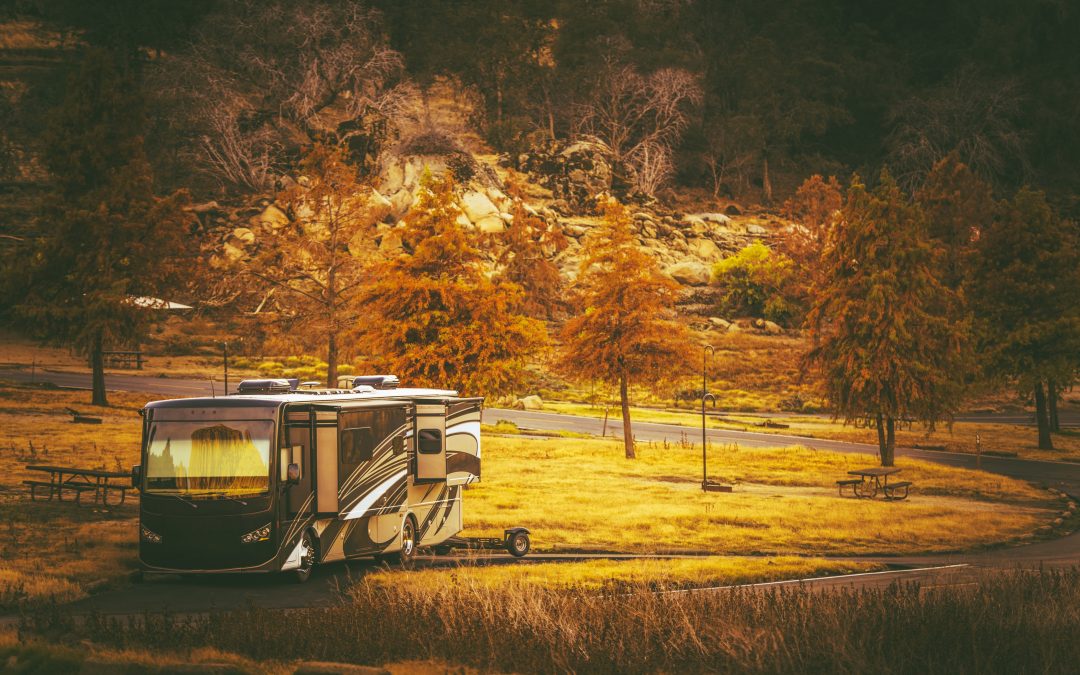If you live in the colder parts of the country, this might be the time of the year when you take advantage of visiting the warmer southern areas in your RV. In other words, that beast isn’t going to sleep through the winter.
On the other hand, if you don’t plan to do any traveling through the cold months, it’s time to make sure your RV or travel trailer is ready for the cold winter months. In a perfect RV storage world, you’ve got your investment stored in a climate-controlled environment. You don’t have to worry about winterizing. Even so, there are some things you should keep in mind if you won’t be taking any trips until spring.
Don’t Forget Your Batteries
Not the ones in the flashlight in the storage compartment above the driver – the army of costly-to-replace “coach” or “house” batteries that run the 12-volt electrical system designed to make life comfortable when you’re not plugged into the electrical grid.
While these batteries have become more sophisticated over time – along with the 12-volt systems being installed in newer coaches – you want to make sure there’s no drain on them while your RV or trailer isn’t being used. Some of the coach’s components, such as the refrigerator, may tap into these batteries.
Consult your operating manual or ask an expert for help. RVs and trailers usually have a main switch-off that allows you to safely isolate these batteries from use. Keep in mind that once you flip the switch, you’ll have no power to operate things like motorized retractable steps – unless the storage area you’re using offers access to external electrical sources.
Look for Uninvited Guests
Not the human kind. Four-legged rodents like squirrels and mice. Your RV or trailer is a great place for them to hang out during the cold winter months. If you use a storage facility, ask about their rodent control procedures. It’s an important first step, but don’t leave it all up to them.
Prior to storage, focus on your RV or trailer’s undercarriage and make sure there are no signs of damage or rodent infestation. Patch holes or put up barriers. It’s better to assume that you might have a few uninvited visitors even if the storage facility insists they have a sufficient procedure in place for pest control.
Inside and Out
If you own an RV or trailer, you know how expensive it is to repair damage to the fiberglass exterior. It’s why many owners insist on covered or enclosed storage – especially during the cold winter months. While that concern may not be as prominent, many RV and trailer owners opt for a cover for additional protection – even if it’s just for dust protection.
And speaking of dust, don’t neglect to prep your RV or trailer interior for storage. Double-check the kitchen area for that forgotten box of crackers pushed way to the back of the upper shelf. Most operations manuals also recommend thoroughly cleaning the refrigerator and freezer, shutting it off, and then keeping the doors slightly ajar to allow for air circulation.
A growing number of property owners are electing to sidestep all this seasonal preparation by putting up a pre-fabricated metal building to store their RV or travel trailer. This puts your expensive investment just steps away from home, and our Miracle Truss® designs allow for inexpensive insulation options. Why throw away money on monthly rentals when you can own a place to store your RV? We offer metal and steel RV and marine storage options. Check out our gallery.



